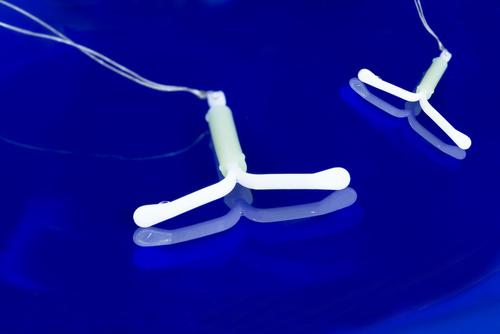 IUD contraception method requires insertion of a T-shape device into the uterus.
IUD contraception method requires insertion of a T-shape device into the uterus.Extending the use of the 53-mg levonorgestrel intrauterine device (IUD) and the T380A copper IUD results in reduced rates of pregnancy, adverse events, and discontinuation owing to side effects, which are also comparable to those during approved duration of use, a study has shown.
The investigators searched PubMed, Embase, Cumulative Index to Nursing and Allied Health Literature, and Global Index Medicus from inception through June 2019 for studies of women using the T380A copper or currently available levonorgestrel IUDs past their approved duration.
Data were abstracted into evidence tables, and study quality was assessed in relation to the risk of bias, precision, and external viability. The investigators used the Poisson inverse variance method to calculate the pooled pregnancy rate for each device type during the first 2 years of extended use.
Pregnancy was the primary outcome, while safety outcomes included adverse events and side effects that led to discontinuation.
Of the 4,068 studies identified, four good-to-poor-quality studies of the 52-mg levonorgestrel IUD (approved for 5 years) comprising 2,098 women initiating extended use and two good-to-fair-quality studies of the T380A copper IUD (approved for 10 years) comprising 245 women initiating extended use were included in the analysis.
The pooled pregnancy rate for the levonorgestrel IUD was 0.02 per 100 person-years (95 percent confidence interval [CI], 0.00–0.45) in year 5, 0.03 per 100 person-years (95 percent CI, 0.00–0.71) in year 7, and 0.02 per 100 person-years (95 percent CI, 0.00–0.29) in years 6 and 7 combined.
During this period, annual rates of adverse events or discontinuation due to side effects ranged from 0 to 3.7 per 100 participants.
The pooled pregnancy rate for the copper IUD was 0.0 per 100 person-years (95 percent CI, 0.0–0.8) for years 11 and 12. The annual rates of adverse events and discontinuation for the same period ranged from 0 to 4.6 per 100 participants.
“Data were limited in quantity and quality and may not be generalizable to all IUD users,” the investigators said.